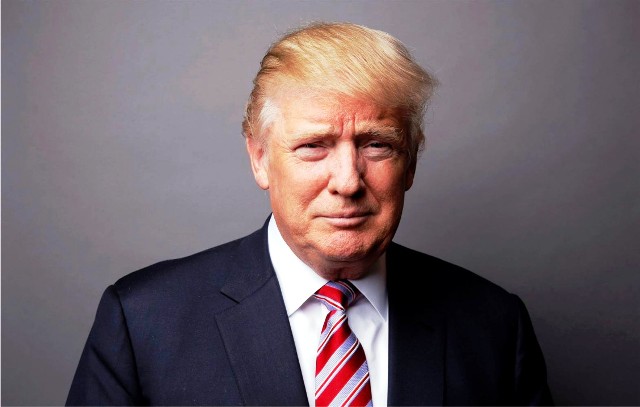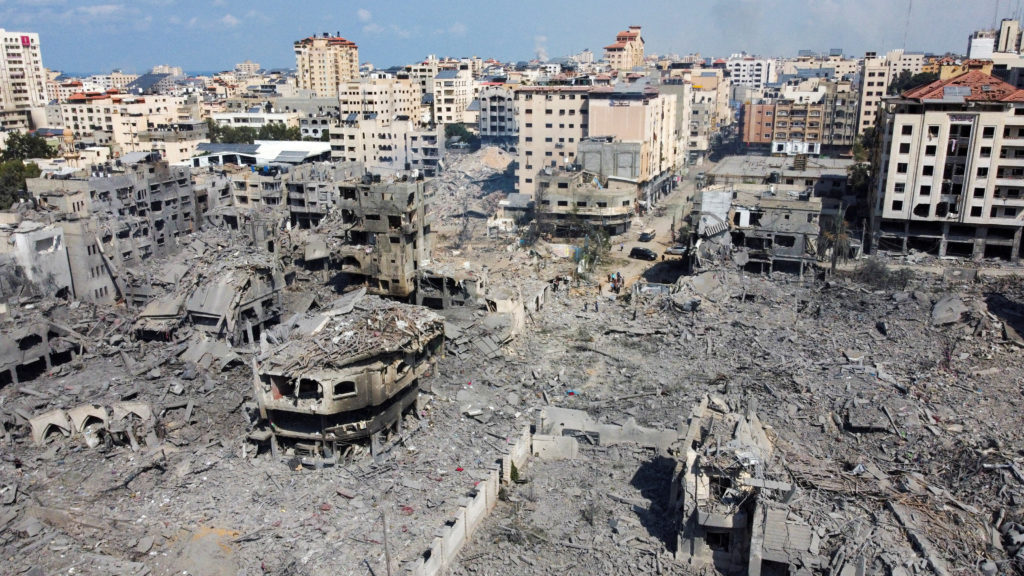Editorial
Combating TB In Rivers
Rivers State, on March 24, joined the rest of humanity to mark the 2020 World Tuberculosis Day, with the major target to do everything possible, with its array of influential religious leaders and other stakeholders, to change her fifth high burden status among the 36 states and Abuja, with its current burden estimated at above 16,000 cases.
Speaking at an event to mark the day, the state Commissioner for Health, Prof Chike Princewill, noted that in 2019, about 3,728 persons were diagnosed and treated for TB in the state, adding that apart from the 12 approved rapid diagnostic machines for free TB diagnosis provided in Rivers State, key players should join hands with the government to provide additional 15 TB diagnostic machines for the state in order to reduce the health burden on Rivers people.
The WTBD, observed by member states of the United Nations each year, is designed to build public awareness about the global epidemic of tuberculosis and efforts to eliminate the disease. Proposed by International Union Against Tuberculosis and Lung Disease (IUATLD) as an official UN Observance in 1982, a century after its discovery, with the theme, “Defeat TB: Now and Forever”, WTBD was not officially recognised as an annual occurrence by WHO’s World Health Assembly and the UN until over a decade later.
Tuberculosis is caused by bacteria (Mycobacterium tuberculosis) that most often affect the lungs. It’s curable and preventable, and is spread from person to person through the air. People who are infected with HIV are 19 times more likely to develop active TB. The risk of active TB is also greater in persons suffering from other conditions that impair the immune system. Common symptoms of TB are cough with sputum and blood at times, chest pains, weakness, weight loss, fever and night sweats.
In his message to mark World TB Day, WHO Director-General, Dr Tedros Adhanom Ghebreyesus, emphasized that, “COVID-19 is highlighting just how vulnerable people with lung diseases and weakened immune systems can be. Millions of people need to be able to take TB preventive treatment to stop the onset of disease, avert suffering and save lives”.
The Director of WHO’s Global TB Programme, Dr Tereza Kasaeva, also echoed the same sentiment, saying, “As people around the globe come together to commemorate World TB Day, WHO is calling on governments, affected communities, civil society organisations, health-care providers, donors, partners and the industry to unite forces and step up the TB response – notably for TB preventive treatment – to ensure no one is left behind. We stand in solidarity with those affected by COVID-19 and those at the frontlines of the fight to combat the infectious disease. We need to act with urgency to ensure that in line with our vision of Health for All, no one with TB, COVID-19 or any health condition will miss out on the prevention and care they need. The time for action is now.”
Despite that linkage between TB and COVID-19, among others, as some of the infectious diseases complications ravaging humanity, Rivers State has effectively prosecuted the fight against TB over the last two decades and half, and the result has been crystal clear. Although the state ranked 5th in 2019 in high burden in Nigeria, The Tide is glad that the treatment for TB has been exponentially high in the state, even as the major challenge still remains in identifying infected persons. We note that last year, over 3,728 people were diagnosed of TB and subsequently placed on treatment. We also reckon the good treatment outcome in Rivers State, where cure rate is high; and treatment success rate is almost 90%, even as the World Health Organisation (WHO) target for success rate is about 25%.
This year’s theme, “It’s Time”, is aimed at drawing attention to the urgent need to act, by ensuring equitable and people-centred TB response and increased access to prevention and treatment, reduce stigma and discrimination as well as build accountability. This is why we suggest innovative ways to increase access to TB treatment while emphasizing collaboration with private sector by engaging private health practitioners, patent medicine vendors and community pharmacists to scale up the fight. Health workers as key stakeholders are enjoined to be more painstaking in the discharge of their duties, by among other things, obtaining information about patients’ history of cough, and make effective use of modern diagnostic services.
With this year’s target aimed at mobilising religious leaders in the fight, we urge those with large congregants to be in the frontline and use their exalted positions to raise awareness at the various churches and mosques on the need to go for diagnosis, and subsequently be treated, which will ultimately lesson the infection burden on the state. We equally advise them to be part of the crusade against TB by encouraging their followers to visit health facilities for diagnosis and treatment, if need be, with a view to combating the scourge and reversing the spike in the state.
Even as Rivers State ranks 5th in high burden of TB among the 36 states and the FCT, Nigeria regrettably ranks first among TB burden nations in Africa, and sixth globally, with 300,000 cases missing in most communities. About 18 Nigerians die hourly from TB, while 49 develop active TB; seven of which are children. In 2012, approximately 1.4 million deaths were attributed to TB infection, and Nigeria ranked 10th of the 22 high burden TB countries, and recorded over 190,000 new cases and over 280,000 prevalent TB cases. In 2016, Nigeria ranked 4th out of the 22 high tuberculosis burden countries worldwide and had the highest burden of tuberculosis in Africa, with an estimated 407,000 cases.
As we mark World TB Day 2020, the disease remains the world’s top infectious killer. Each day, over 4,000 people lose their lives to TB and close to 30,000 people fall ill with this preventable and curable disease. We join WHO, its partners, civil society and governments, especially Rivers State, in asking for support of major stakeholders, including religious leaders in scaling up the TB response, to achieve the Sustainable Development Goals targets of ending the TB epidemic by 2030.
As the world comes together to tackle the COVID-19 pandemic, it is important to ensure that essential health services and operations are continued to protect the lives of people with TB and other infectious diseases or health conditions. Health services, including national and state programmes to combat TB, need to be actively engaged in ensuring an effective and rapid response to COVID-19 while ensuring that TB services are maintained. We urge continued efforts to tackle longstanding health problems, including TB during global outbreaks such as COVID-19. At the same time, we suggest that programmes already in place to combat TB and other major infectious diseases can be leveraged to make the response to COVID-19 more effective and rapid.
We, therefore, challenge religious leaders, community leaders, policy makers, and the media community to join other stakeholders to collectively win the war against infectious diseases, including TB, COVID-19, and their likes. It is a task that must be done for the benefit of humanity. We urge leaders across all levels to put the accent on the urgency to act on the commitments made to: scale up access to prevention and treatment; build accountability; ensure sufficient and sustainable financing including for research; promote an end to stigma and discrimination, and encourage equitable, rights-based and people-centred TB response. We charge all to join forces under the banner “Find. Treat. All. #EndTB” to ensure no one is left behind. Let us unite forces in raising our voices for the millions suffering and dying due to TB, especially in the midst of the COVID-19 pandemic. It’s time for action. It’s time to end TB.
Editorial
New Federal Varsity In Ogoni

President Bola Ahmed Tinubu has made history by signing into law a bill that establishes the Federal Univer-
sity of Environment and Technology in Ogoni, Rivers State. This significant occasion marks a bold step forward not only for the Ogoni people but also for the Niger Delta region and Nigeria as a whole. It signifies a commitment to education, environmental sustainability, and technological advancement.
For the Ogonis, who have long been impacted by environmental challenges, the university represents a beacon of hope. It is more than just bricks and mortar; it is a symbol of empowerment and a pathway to a brighter future. This development is akin to a seed, planted with the promise of a flourishing harvest of skilled professionals.
The university’s emphasis on environmental technology is extremely important, especially given Nigeria’s climate crisis. Education plays a crucial role in developing sustainable solutions. The institution will provide students with the necessary skills and knowledge to address the environmental challenges affecting the Niger Delta region and beyond. This will have a momentous impact.
Signing the bill, the President praised the Ogoni people’s resilience and unity. He stressed that the institution would mark a “significant milestone in our national journey towards environment justice, education and sustainable development”. Tinubu said the university is a reaffirmation of his administration’s “unwavering commitment to the people of Ogoni, the Niger Delta and the nation as a whole. For decades, the Ogoni people have been at the forefront of fight for environmental restoration and sustainable development, shaping both national and global conversation of these critical issues.
“By signing this bill into law, we are taking a decisive step towards addressing historical grievances and creating new opportunities for learning, growth and prosperity. The university will serve as a centre of excellence, equipping young Nigerians with the knowledge and skill to tackle present environmental challenges, drive clean energy solutions and contribute to our national sustainable economic development.”
We commend President Tinubu for his visionary decision to establish the much-needed institution aimed at fostering development and progress. This initiative is a testament to his commitment to addressing critical social and economic knots and creating opportunities that will benefit the people. The President has laid a solid foundation for sustainable growth while demonstrating a genuine desire to empower and advance the nation’s collective interests.
In addition to his commendable action, we applaud Tinubu for initiating peace talks to bring stability and reconciliation to the troubled area. The decision to engage in constructive dialogue demonstrates a deep understanding of the relevance of inclusive governance and the role of peace in fostering meaningful development. For decades, Ogoni has endured turmoil and neglect, impeding its potential and the return of oil exploration activities.
By opening the door to peaceful negotiations, the President has made a bold and necessary move towards healing fractured relationships and fostering trust among stakeholders. This initiative holds the promise of ensuring that the voices and needs of the Ogonis are heard and respected. We urge all parties involved to seize this golden opportunity for lasting peace and progress. It is only through unity and mutual respect that the full potential of Ogoni, and by extension the nation, can be realised.
As steps are taken to acknowledge and remediate the damage caused by years of oil exploration and production, the Ogonis must reciprocate Mr. President’s gesture by fostering a climate of equanimity and stability. This will ultimately pave the way for the resumption of oil exploration and production. This is not a call to forget the past, but a pragmatic recognition that meaningful change and sustainable development require a collaborative approach.
The Federal Government has a responsibility to ensure that all academic disciplines offered by the new university are fully accredited to maintain the integrity and quality of the school. Without proper accreditation, the institution risks producing graduates who are ill-equipped to compete in the global workforce or contribute substantially to national development. Accreditation serves as a benchmark that ensures programmes meet academic standards and adhere to best practices across various fields of study.
Staff recruitment should be conducted carefully, as the individuals brought into a team can greatly influence an organisation’s performance, culture, and long-term success. The primary focus of recruitment efforts at the university should be on attracting the best candidates who possess the necessary skills, qualifications, experience, and values. Merit should be the guiding principle in decision-making throughout the hiring process, rather than favouritism or personal bias.
For a nation to thrive in the 21st century, a strong higher education system is not only desirable, but essential. Universities serve as the catalysts for innovation, the breeding grounds for future leaders, and the foundations of a knowledge-based economy. The Federal Government must acknowledge this vital role and take intentional actions to properly fund the university in Ogoni and develop infrastructure to ensure it meets international standards. Neglecting this responsibility would put its future prosperity and global competitiveness at risk.
This institution must not suffer the same fate as other federally-owned universities that have been left to decay. That will be a disservice to its purpose and potential. Many government-owned universities in the country have struggled with dilapidated infrastructure, underfunding, insufficient staffing, and interruptions caused by industrial actions due to unpaid wages or poor working conditions. These challenges have led to declining standards in education, putting both students and staff at a disadvantage. The Ogoni University must not be another victim of this worrying trend.
Editorial
HIV, Transiting From Donor Dependence

The initial announcement by United States President, Donald Trump, to cut funding for international
HIV/AIDS initiatives sent shockwaves through the global health community. In Nigeria, a country facing a significant HIV/AIDS burden, the potential consequences were dire. However, the subsequent waiver granted by the administration has provided a lifeline for the millions of Nigerians who rely on the President’s Emergency Plan for AIDS Relief (PEPFAR) for their treatment and support.
PEPFAR has been an important partner in Nigeria’s fight against HIV/AIDS. Since its inception in 2003, PEPFAR has committed more than $7.8 billion to the country, catering to approximately 90 per cent of HIV treatment requirements. With this funding, Nigeria has been able to enhance its HIV prevention, treatment and support services and has witnessed a reduction in HIV/AIDS deaths.
The waiver granted by the Trump administration guarantees that PEPFAR’s life-saving medicines and medical services will continue to reach the needy. Antiretrovirals (ARVs) are the most common type of medicine used to treat HIV and reduce the virus’ spread. Through the provision of ARVs, PEPFAR helps prevent the spread of HIV and enhances the quality of life of those with the condition.
Although Nigeria was recently exempted from the requirement, the signs are evident: the country has to graduate from dependence on donor funds for its HIV/AIDS control programmes. Over the years, partners including the U.S. government have been central to the provision of treatment to people living with the virus. However, it is time for Nigeria to own its national response to HIV/AIDS.
Nigeria’s HIV/AIDS burden remains critical, accounting for 10 per cent of the global total. In 2023 alone, there were 75,000 new infections and 45,000 HIV-related deaths. The battle against Mother-to-Child Transmission remains challenging, with only 35 per cent of the target 75 per cent being met. Nearly 1.7 million Nigerian children have been orphaned due to HIV. Vulnerable populations, especially women and children, continue to disproportionately suffer.
To transition away from donor dependence, a multifaceted approach is necessary. Firstly, the country must increase its domestic financing for HIV/AIDS programmes. This can be accomplished through innovative funding mechanisms, such as leveraging public-private partnerships and exploring local revenue sources. Secondly, the government needs to strengthen its healthcare system to ensure equitable access to testing, treatment, and care. This involves expanding access to antiretroviral drugs, investing in community-based models, and addressing the stigma associated with HIV.
Thirdly, Nigeria must prioritise prevention efforts. This entails promoting condom use, providing comprehensive sexual education, and increasing awareness about the risks and modes of transmission. By focusing on prevention, the country can decrease the incidence of HIV infections and ultimately lessen the burden on its healthcare system.
Finally, Nigeria should develop a sustainable human resource strategy for its HIV/AIDS response. This involves training and equipping healthcare workers, engaging community volunteers, and empowering people living with HIV to advocate for their rights. A well-trained workforce is essential for delivering high-quality services and ensuring the long-term success of the response.
The transition beyond donor dependence is a complex but necessary journey for the country. By increasing domestic financing, strengthening healthcare systems, prioritising prevention, and investing in its human resources, the country can create a sustainable and effective response to HIV/AIDS. Also, the government should consider alternative funding mechanisms, such as increased domestic funding, public-private partnerships, and philanthropic initiatives. The time to act is now, for the well-being of present and future generations.
Nigeria’s National Agency for the Control of AIDS (NACA) has made momentous strides in combating HIV/AIDS, including expanding access to testing, treatment, and education. However, challenges persist, hindering the effectiveness of these efforts.
One major obstacle is limited access to healthcare facilities, particularly in rural areas. This impedes timely diagnosis and treatment, reducing the likelihood of optimal outcomes for those living with HIV. Additionally, stigma surrounding the disease remains a formidable barrier, preventing individuals from seeking testing and care. Inadequate awareness campaigns further contribute to low testing rates and delayed diagnosis.
Addressing these challenges requires concerted action by the government and stakeholders. Allocation of adequate funding is crucial to expand healthcare infrastructure and ensure the availability of essential services. Moreover, targeted interventions to reduce stigma and promote awareness are vital for increasing testing and early detection.
Collaboration between civil society organisations and grassroots movements is also essential for advocating for protection of HIV funding. Advocacy campaigns can mobilise public support and pressure lawmakers to prioritise the fight against HIV/AIDS. By addressing these challenges and ensuring sustainable funding, Nigeria can depend less on donor countries, drastically reduce HIV transmission, and provide the necessary care to those affected by the disease.
Editorial
Israel-Gaza War: Sustaining The Ceasefire

-

 Sports2 days ago
Sports2 days agoEaglets Not In CAF’s U-17 AFCON Plans
-

 News2 days ago
News2 days agoPoliceman Commits Suicide In Niger
-

 Politics2 days ago
Politics2 days agoPrioritise Citizens’ Wellbeing To Avoid Dire Consequences, Don Warns Political Elite
-
Maritime2 days ago
Navy Seizes 265 Bags Of Cannabis
-

 Maritime2 days ago
Maritime2 days agoNigerian Customs Personnel And Smuggling Curtailment
-

 Business2 days ago
Business2 days agoBayelsa Begins EIA On 60MW Power Plant
-

 Rivers2 days ago
Rivers2 days agoOgonis Endorse Dialogue On Oil Extraction Resumption
-

 Sports2 days ago
Sports2 days agoFA Cup: Minnows Stun Liverpool, End Dream

